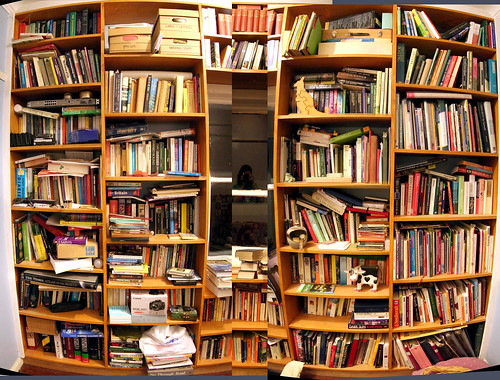 I got linked (I think it was through David Warlick, but it might have been through Doug Johnson) to a blog called Artichoke and her post about the value of technology (and you thought Betty Bunhead was a bizarre title for a blog. Although when you think critically about the artichoke, you'll find that it represents a multi-layered concept so it's probably not as bizarre as you think. If you think critically about Betty Bunhead, you'll see my reasoning behind the title. I invite you to post comments about the origin of B.B.)
I got linked (I think it was through David Warlick, but it might have been through Doug Johnson) to a blog called Artichoke and her post about the value of technology (and you thought Betty Bunhead was a bizarre title for a blog. Although when you think critically about the artichoke, you'll find that it represents a multi-layered concept so it's probably not as bizarre as you think. If you think critically about Betty Bunhead, you'll see my reasoning behind the title. I invite you to post comments about the origin of B.B.)This is a complicated process requiring critical thinking every step along the way.
What is the author trying to accomplish?
What issues or problems are raised?
What data, what experiences, what evidence are given?
What concepts are used to organize this data, these experiences?
How is the author thinking about the world?
Is her thinking justified as far as we can see from our perspective?
And how does she justify it from her perspective?
How can we enter her perspective to appreciate what she has to say?
All of these are the kinds of questions that a critical reader raises. And a critical reader in this sense is simply someone trying to come to terms with the text.
So if one is an uncritical reader, writer, speaker, or listener, one is not a good reader, writer, speaker, or listener at all. To do any of these well is to think critically while doing so and, at one and the same time, to solve specific problems of communication, hence to effectively communicate."
What about incorporating some of the reader critical thinking questions into our lit/reading circle with the texts that we are using? What about using the other critical thinking questions listed above in media literacy and evaluation of websites? What about providing models of good critical thinking and models that are poor examples and having students analyse them (just like we do with the 6 traits of writing)? What if we slow down and give students longer response times and push them to think more deeply, instead of superficially? What if we backed off teaching as much content and put more of our efforts into process?
Questioning is the key - the right questioning is the key if we are to develop thinking students.







